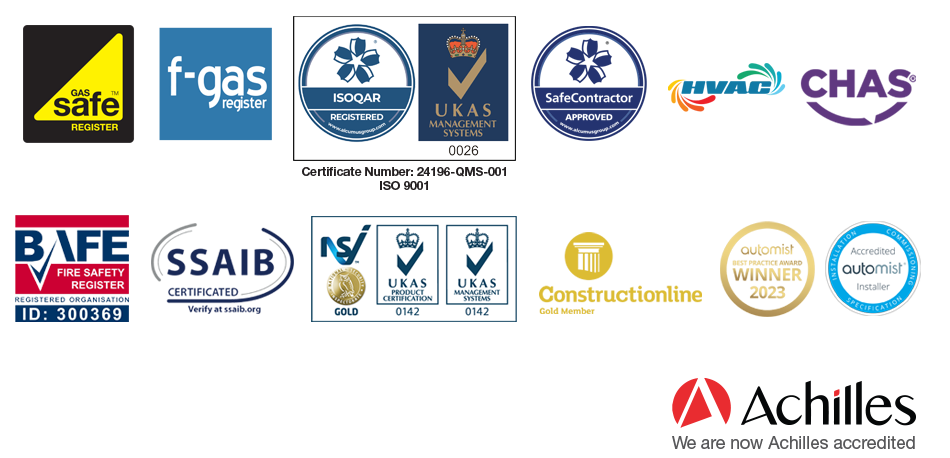In October last year, the government announced that it was going to offer £5000 to people in England and Wales to replace their gas boilers with heat pumps, as part of their efforts to reduce greenhouse gas emissions in the UK. Now, we love this idea, because heat pumps are one of the most efficient ways to provide heat there is, and their effectiveness has been proven in the commercial sector time and time again. But if you’ve never heard of a heat pump before, what is it, and how does it all work?
What Is A Heat Pump?
A heat pump is simply another method of heating a property. But instead of using gas or electricity to heat air and water for your property, heat pumps draw thermal energy from natural sources. They are usually reserved for commercial buildings, like offices, restaurants, blocks of flats and shopping centres, since the units needed to run them are quite large and the compressor is quite noisy, so they benefit from being housed in their own plant room. But residential units can be fitted to your home, so it’s worth considering it as an option if you’re looking to upgrade your home heating.
The main sources you can draw energy from with a heat pump are:
- Air source
- Ground source
- Water Source
- Air to Water
Each type works slightly differently, but the outcome is always the same – heat.
How Do They Work?
The basic premise of a heat pump is to absorb any low-grade thermal energy from your chosen source, and transfer that energy to a heating element that can bring it to the desired temperature before dispersing it throughout the heating system of your building. This heating element is confusingly often called ‘coolant’, and it doubles as a pump for the energy absorbed as well as a heating mechanism. The way this works is a bit different for each source – for example, an air-source pump will suck in outdoor air and pass it over a set of tubes containing refrigerant fluid to produce heat. The refrigerant is then pumped through pipes that compress it to your desired temperature before being send to the radiators and hot water cycler in your building.
It’s similar to the idea of a standard gas boiler, but instead of drawing energy from your gas source to heat the water, you are drawing it from a more natural source instead. By doing this you are cutting your carbon emissions considerably as well as your general energy cost, since heat pumps are on average 400% more energy efficient than a boiler.
How Much Do They Cost?
This is the question on everyone’s minds, especially with the recent energy crisis and sharply rising energy prices. Heat pumps can certainly be a much cheaper option long term, especially if you have solar panels fitted on your building, but there is debate whether they are a more cost-effective option in the short term, especially for residential properties. The installation often requires a retrofit or a complete refit of your current heating system, which can be costly and difficult to time in the colder months when you don’t want your building to be without heat for any length of time while it’s being installed. But the government are currently working to make sure that heat pumps cost no more to install and run than a standard boiler, and have set themselves a target of installing 600,000 heat pumps a year by 2028 – as part of their commitment to reaching their zero carbon commitment.
Are There Alternatives?
Of course! As with everything, there are a lot of different methods you could choose to heat your commercial or residential property, many of which are being specifically developed to be energy efficient and environmentally friendly. Alongside heat pumps and gas boilers, some options include:
- District heating – energy giant Vattenfall is currently planning a network of hot water pipes in south-east London as a proof of concept that could benefit up to half a million homes, businesses and public buildings. This option is still a long way from being rolled out nationwide.
- Hydrogen – This substance could flow directly from big gas companies and into your home pipes. The government is currently running trials on hydrogen heating solutions, with a series of pilots due to finish at the end of the decade. However, this is the last carbon neutral option being explored.
At Bonus Eventus Maintenance Ltd, we believe that heat pumps are often the best option for providing heat and hot water in an energy-efficient and environmentally friendly way. That’s why we offer comprehensive information at our consultations, along with step-by-step installation and guidance on maintenance and future use. If you’d like to know more about heat pumps, just get in touch with our team today.
